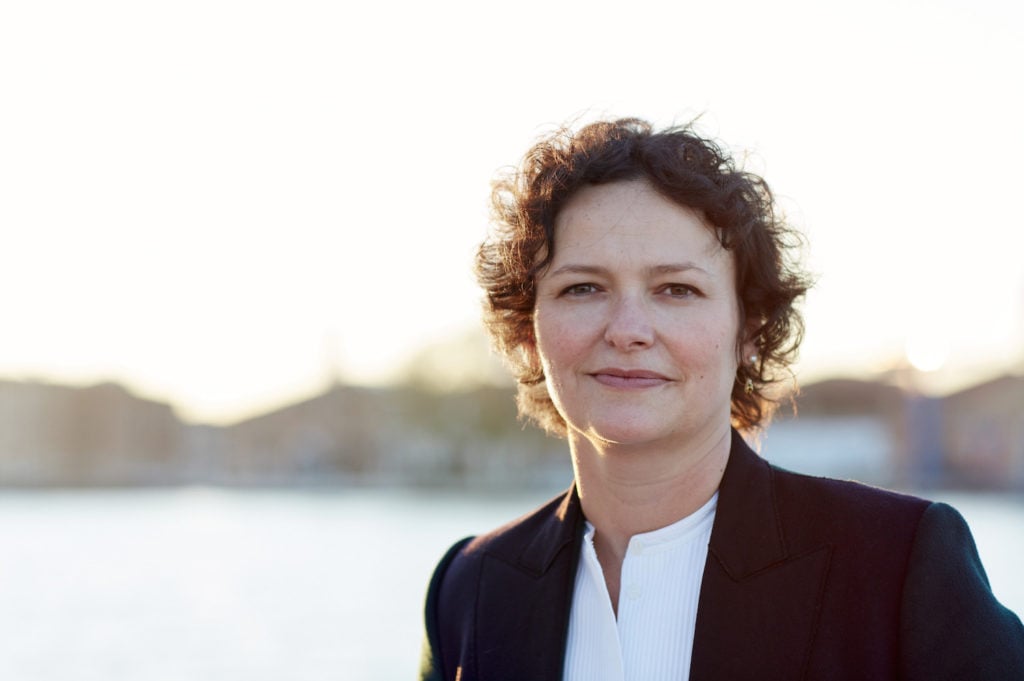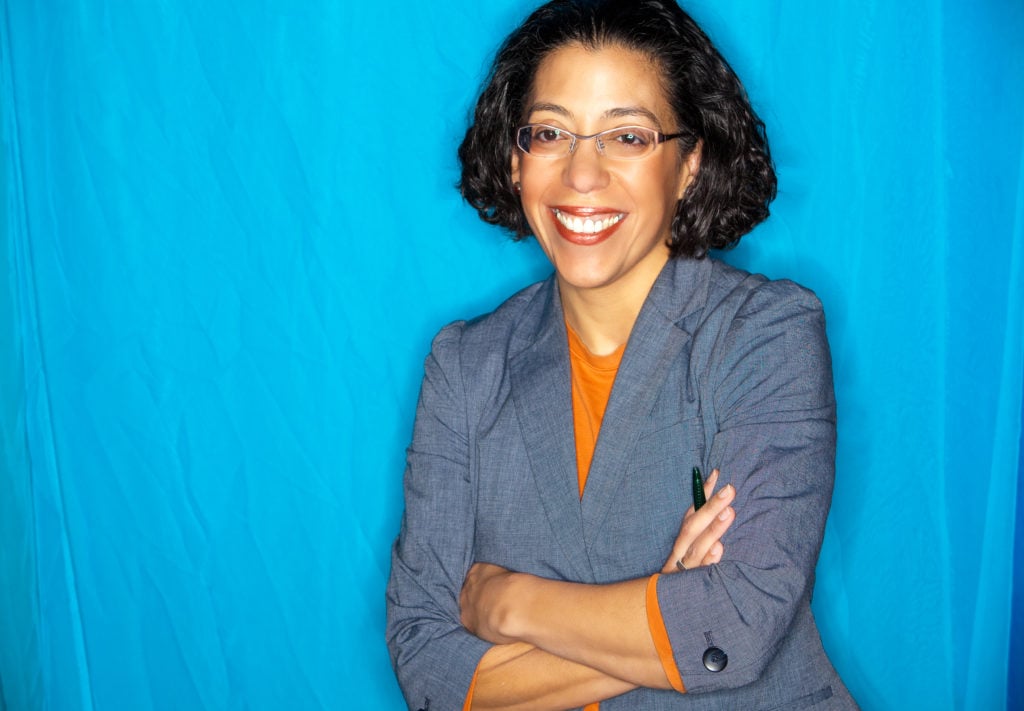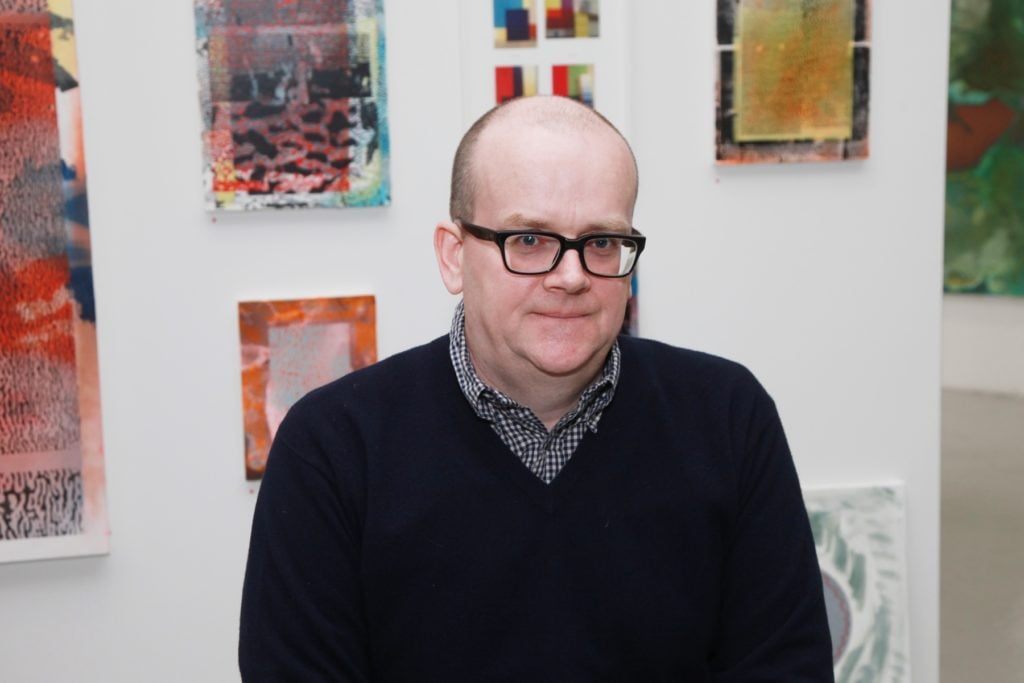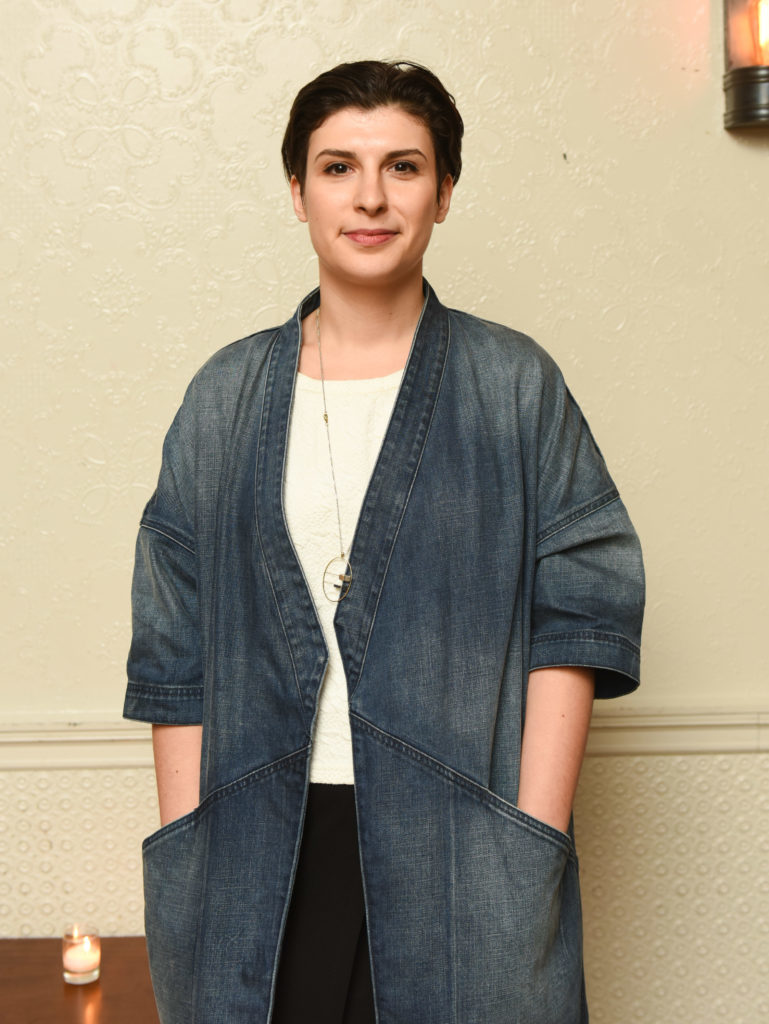Art World
Who Should Take Over as Director of MoMA PS1? 5 Leading Art-World Figures Tell Us Who They’d Pick
Here are five potential candidates to replace Klaus Biesenbach when he leaves for MOCA LA.

Here are five potential candidates to replace Klaus Biesenbach when he leaves for MOCA LA.

Rachel Corbett

Since news broke earlier this month that Klaus Biesenbach is leaving his longtime job as director of MoMA PS1 to run the Museum of Contemporary Art, Los Angeles, insiders in the art world have been speculating about who could—and should—replace him. We spoke to a group of art critics, dealers, curators, and other tastemakers for their takes on who they’d like to see assume the mantle at the beloved Queens museum, and why. Here are their dream candidates.

Cecilia Alemani, artistic director of Art Basel Cities Buenos Aires. Photo: Marco De Scalzi.
Current job: Director and chief curator of High Line Art
Experience: Alemani began her job with the High Line’s public art program in 2011, and she has since launched video and performance series atop Chelsea’s beloved elevated park. She was a guest curator in 2011 for Performa 11 and, from 2012 to 2017, she curated Frieze Projects. Before that, the was the curatorial director of X Initiative, the 2009 Chelsea project that later evolved into the Independent Art Fair. At last year’s Venice Biennale, Alemani curated the Italian Pavilion into a tour-de-force survey of mystical experience. This year, she is serving as artistic director of the inaugural edition of Art Basel Cities: Buenos Aires.
Artists she’s worked with: El Anatsui, John Baldessari, Phyllida Barlow, Carol Bove, Olafur Eliasson, Gilbert & George, Sheila Hicks, Dorothy Iannone, Roberto Cuoghi, Rashid Johnson, Barbara Kruger, Louise Lawler, Zoe Leonard, Kerry James Marshall, Raymond Pettibon, Ed Ruscha, Henry Taylor, Nari Ward, and Adrian Villar Rojas, among others
Endorsed by: Jerry Saltz, senior art critic, New York Magazine
“I think she’s the best possible candidate for the job and could really vitalize the place. She knows every young, middle-aged, and older artist around and has never been obsessed with only young artists or stuck in the rut of trying to rediscover second-tier artists and trying to foist them on everyone as stars, or new market niches.
“She has worked at all sorts of museums, institutions, and foundations. I would say I’ve never seen a real stinker by her and that somehow her values feel very close to art. She’s one of the founders of the bloody Independent, for God’s sake—which is sort of better sometimes, even when it’s a little stinky, than PS1.
“The rub? I love MoMA PS1. Klaus was a true Impresario-Producer. And curated a batch of really good shows not to be scoffed at. He may be the only one in that backwards museum who would ever display scores of Henry Dargers. (He still isn’t installed in the permanent collection. Sigh, oh MoMA; we adore you, but please!)
“But my fear is that MoMA might just overlook Alemani for some stiff academic professional curator, or someone “already in line” at the museum. Or one of those super-curators who curates shows all over the world and who you see more at biennials and art fairs than galleries. PS1 is great; yet it still has extraordinary potential. Alemani could kick ass there. The only reason I can imagine she wouldn’t get the job is for the above-stated reasons; plus MoMA sometimes so overthinks it.”
What she would bring to MoMA PS1 that’s currently lacking:
“PS1 is one of the best spaces for rotating shows on the East Coast,” Saltz says. “I mean, Dia:Beacon’s space is great but it’s basically a Temple to Minimalism and Post-Minimalism. I feel like after the openings of shows at PS1—other than out-of-town visitors—the place isn’t generating much discourse, excitement, etc.
“I’d love to see PS1 play much faster and looser; curate more shows—shows that would be up for a little less time; keep the place much more dynamic, fun, in motion, in play.
“I know that it is MoMA and MoMA has ‘standards’ and all. Still, the shows don’t have to be very slick or even highly produced. Or that expensive. Imagine the art world having a real place to go again, as a camp-fire where there’s always something there in the air. As for the rave-things in the summer—while I love watching those zillions of kids dance—and don’t want to see that go away—I can see a lot more happening in that space. Like for the art world too. All for not much money.
“Should I even say she’s a woman? Or a mother? And one of the funniest, smartest people in town, and who never plays favorites, listens, and is open. And is ready to create something extraordinary. That, or she’ll get hired by someplace out of town and New York will lose out.”

Naima Keith. Photo courtesy of the Studio Museum.
Current job: Deputy director of exhibitions and programs at the California African American Museum
Experience: From 2011 to 2016, Keith was an associate curator at the Studio Museum in Harlem. She is currently co-curating Prospect.5 with Diana Nawi, scheduled to open in New Orleans in 2020.
Artists she’s worked with: Titus Kaphar, Genevieve Gaignard, Hank Willis Thomas, Glenn Kaino, Rob Pruitt, Rodney McMillian, Samuel Levi Jones, Kenyatta A.C. Hinkle, and more
Endorsed by: Colony Little, art critic and creator of Culture Shock Art
“I’d like to see Naima Keith in a director role because the California African American Museum (CAAM) glow-up has been a marvel to witness. Since joining the museum in 2016, Keith has implemented a series of transformational changes that expand CAAM’s programming and reach, striking the right balance between curatorial rigor and inclusive public programs. As cultural institutions continue to struggle with inclusive succession plans, Naima would bring vision and a proven track record of results.
“Keith has been the catalyst behind a series of institutional changes at CAAM, increasing the number of exhibitions by turning over all five galleries on a regular basis and expanding the museum’s programming range. She’s also directed a robust slate of programming, including lecture series, artist talks, performances, and the wildly popular partnership with KCRW’s ‘Summer Nights’ series.
“CAAM’s active social media engagement includes event-streaming that enables a broader connection to new audiences. She also directed the implementation of a site overhaul and a logo refresh that harmonizes with some recent capital improvements to the building’s façade. The timing of these reinvigoration efforts align with the ongoing development of Exposition Park, which includes a new soccer stadium and the construction of the Lucas Museum.
“Naima has a clear vision for the institution that she has shared broadly and executed flawlessly. She also possesses the unique skill of being at ease among fellow curators, artists, board members, writers, and the community, giving her the latitude to navigate multiple spaces.”
What she would bring to MoMA PS1 that’s currently lacking:
“Vision, inclusion. I’m not singling out MoMA PS1 when I say that cultural institutions struggle with inclusion in succession planning,” Little says. “I don’t see strong, sustainable progress being made by boards to ensure that diverse candidate pools are considered. I’d like to see that reflected and disclosed in the selection process. Some transparency here is needed.”

E. Carmen Ramos. Photo: Ross Whitaker, courtesy of the Smithsonian American Art Museum.
Current job: Deputy chief curator at the Smithsonian’s American Art Museum
Experience: Ramos previously was an assistant curator for cultural engagement at the Newark Museum and an independent curator. She co-curated the fifth El Museo del Barrio biennial in New York in 2007.
Artists she’s worked with: Paul Henry Ramirez, Chakaia Booker, Rufino Tamayo, Freddy Rodríguez, Eduardo Gil, Adriana López Sanfeliu, Dulce Pinzón, Maria Teresa Ponce, and others
Endorsed by: Karen Vidángos, founder of the blog “A Latina in Museums”
“There are so many brilliant women of color who are reconstructing what the conversation looks like in a contemporary art space when we actively choose to include diverse perspectives. Ramos has had a prolific career that has demonstrated nothing but thoughtful curatorial practice and leadership that’s fostered culture within the communities she’s worked in. The MoMA PS1 vacancy leaves wide open the opportunity to not only continue the great work Biesenbach has done but expand on it, which is exactly what Ramos has done in every step of her career.
“Ramos’s exhibition, ‘Down These Mean Streets: Community and Place in Urban Photography,’ is just one example of her brilliant work in unearthing perspectives not often seen, presenting photography from lesser-known and well-established artists. Having doubled the American Art Museum’s collection of Latino art, Ramos has continued to unpack and explore what it truly means to see contemporary American art today and redefine it. Her work has connected new audiences to meaningful relationships with art, audiences that have long been overlooked and under-served. These endeavors are the kind of vision that supports MoMA PS1’s dedication to new ideas and discourse in contemporary art.”
What she would bring to MoMA PS1 that’s currently lacking:
“Ramos would certainly bring a point of view that’s not afraid to explore and give presence to key yet underrepresented figures and initiate a new outlook on contemporary art,” Vidángos says. “Her past and present work is reflective of that vision and its success is reflective of the kind of positive change we can see when women of color are given a seat at the table.”

Matthew Higgs. Photo: J. Grassi/PMC, © Patrick McMullen.
Current job: Director of White Columns
Experience: Higgs was an artist in England before moving to San Francisco to work as curator of the Wattis Institute for Contemporary Arts at the California College of the Arts. He later co-chaired the College’s MFA program. He has been the director of the nonprofit art space White Columns for 12 years.
Artists he’s worked with: Martin Creed, Jeremy Deller, Josephine Meckseper, B. Wurtz, Rainer Ganahl, Billy Childish, Kate Manheim, Ben Morea, Vaginal Davis, David Shrigley, Zoe Pettijohn Schade, Susan Cianciolo, Ari Marcopoulos, Cynthia Daignault, among many others
Nominated by: Barry Schwabsky, art critic
“I happily have maintained my ignorance of curatorial politics so that I honestly say I have no idea of who would or wouldn’t be a plausible candidate and why. But I’d like to see someone like Matthew Higgs get that job—someone who cares for art and artists and is not a bureaucrat. He’s been great for White Columns and I’d like to see the same untrammeled spirit at work on a larger scale with more resources.”

Julia Kaganskiy. Courtesy of Leandro Justen/BFA.
Current job: Founding director of NEW Inc. cultural incubator at the New Museum (left in 2018).
Past experience: In 2008, Kaganskiy launched the social organization ArtsTech for professionals from the New York art museum, gallery, and startup worlds. From 2010 to 2014 she edited VICE Media‘s arts and technology publication, the Creators Project. In 2014, the New Museum appointed Kaganskiy director of the cultural incubator and artist residency NEW INC.
Artists she’s worked with: DIS, Rachel Rossin, Ekene Ijeoma, Whitney Falk, Tamara Jafar, Tahir Hemphill, Charlie Whitney, Kevin Siwoff, et al.
Endorsed by: Kelani Nichole, founder and director of Brooklyn’s TRANSFER gallery
“Julia Kaganskiy was the founding director of NEW Inc. and grew the organization into a well-funded hub for experimentation in the museum sector. She is an independent curator, supporting a large and lively network of contemporary artists and creative technologists in NYC long before joining the New Museum. She knows everyone on both sides of art and technology, with a true global perspective, and her work has empowered a generation of networked avant-garde artist practice. At NEW Inc. she led an alternative program incubated within a museum to sustainability and growth in under five years, from the ground up.”
What she would bring to MoMA PS1 that’s currently lacking:
“She would be an extremely hands-on alternative to the outgoing director of PS1,” Nichole says. “It’s hard to imagine a better fit. MoMA PS1 seeks to remain ‘a true artistic laboratory’—something Julia delivered on in a big way at the New Museum, with a much more limited set of resources. She has the vision to bring a breadth and depth of programming in emerging artistic practice, and might support the institution as it adapts to the unique constraints of this generation of contemporary art that remains under-supported by traditional museums.”
Here are a few additional names we’ve recently heard floated as plausible candidates for the job.
Simon Castets, director of the Swiss Institute, New York
Kate Fowle, chief curator of the Garage Museum of Contemporary Art, Moscow
Gianni Jetzer, curator-at-large at the Hirshhorn Museum and Sculpture Garden, Washington, DC
Peter Eleey, chief curator at MoMA PS1, New York
Alex Gartenfeld, artistic director at ICA Miami
Defne Ayas, former director of the Witte de With Center for Contemporary Art, Rotterdam
Amy Sadao, director of ICA Philadelphia
Leah Dickerman, director of editorial and content strategy at MoMA